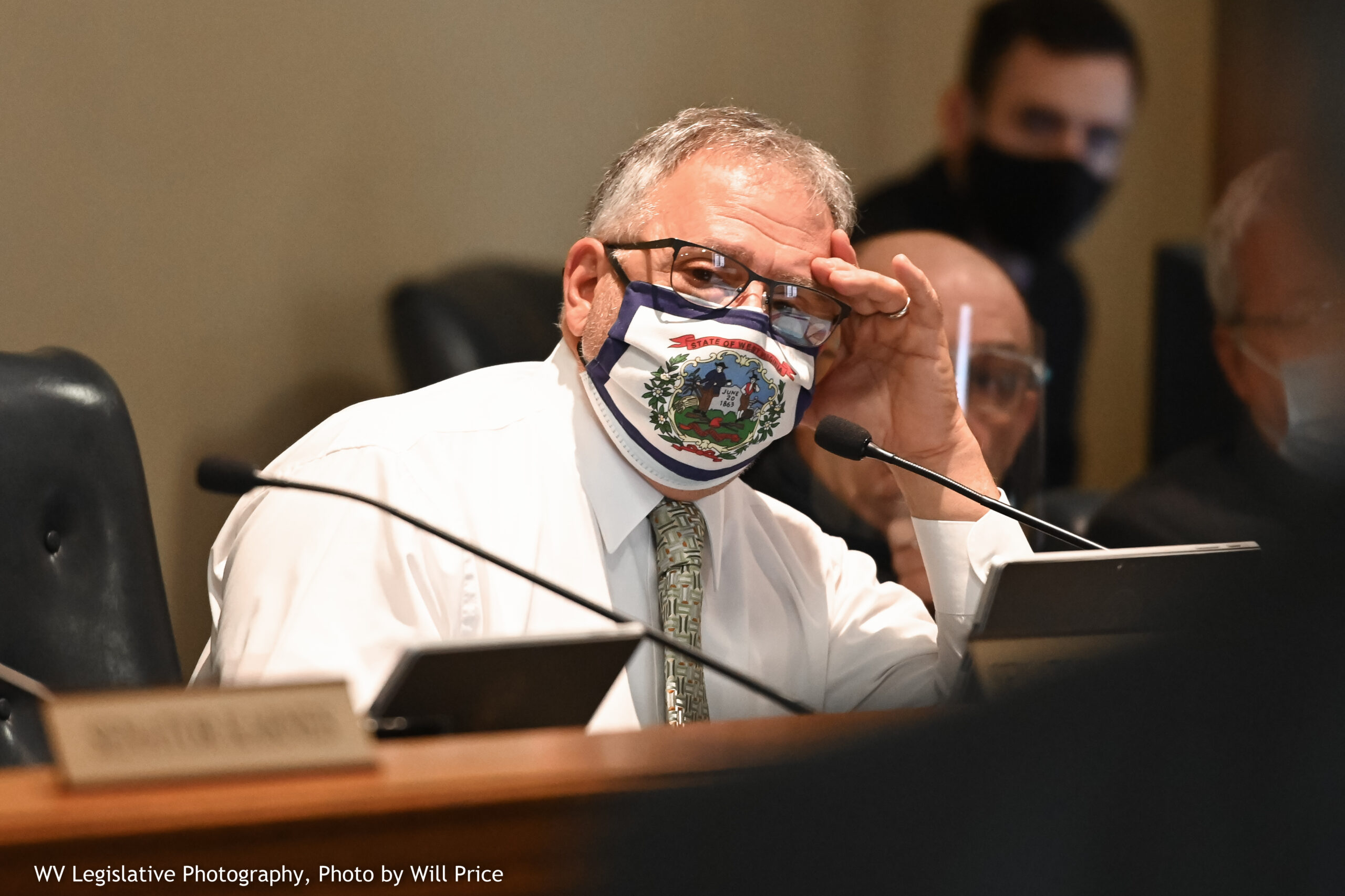MORGANTOWN – It’s not a legislative session without at least one Senate Judiciary debate on an Article V constitutional convention to amend the U.S. Constitution.
Judiciary had its first one of this session Friday, over a bill proposing how to select delegates to such a convention and penalize them if they run amok.
The bill is SB 332. But first, what is an Article V convention?
Article V of the U.S. Constitution establishes two ways to amend it. First, two-thirds of both houses of Congress can propose amendments. Second, two-thirds of the 50 states can apply for a convention to propose amendments. In either case, the proposed amendments would have to be ratified either by the legislatures of three-fourths of the states or by conventions in three-fourths of the states.
The West Virginia Legislature perennially deals with the second type: a convention called by the states. In 2016, both houses approved a resolution applying for a convention to consider a balanced budget amendment, becoming the 28th of 34 states needed.
The other favorite, congressional term limits, has yet to succeed and died last year in House Judiciary – the committee that Senate Judiciary counsel jokingly called “the graveyard of Senate bills.”
Given that a convention has yet to be called, Sen. Richard Lindsay, D-Kanawha, commented Friday, “It’s attempting to solve an issue that doesn’t exist today.”
SB 332 lays out how the Legislature would designate committees to communicate the other states at the convention.
It says delegates may only attend a convention where each state has one equal vote; no delegate may attend a convention requiring proportional representation based on population.
Delegates must take an oath that includes a sentence intended to keep them from participating in what’s termed a “runaway convention,” where all sorts of unexpected amendments are considered: “I will not vote to allow consideration of 5 or to approve any unauthorized amendment.”
Delegates casting an unauthorized vote will be recalled and may be replaced. Violating the oath would be a felony carrying a fine of $100,000 to $500,000 and a prison term up to 10 years.
Some expressed concern over the size of the penalty and questioned whether a state could dictate the behavior of delegates to a federal event.
Sen. Robert Karnes, R-Randolph and lead sponsor, said he believes the penalty provision is authorized by a U.S. Supreme Court ruling on a different matter: In 2020 the court said the state of Washington was within its rights to levy $1,000 penalties against unfaithful electors who didn’t vote for their party nominees for president.
Sen. Mike Romano, D-Harrison and a lawyer, suggested lightheartedly that Karnes tends to interpret court rulings rather broadly and maybe should attend law school.
More seriously, Romano, who opposes Article V bills and resolutions every year, again cited late U.S. Supreme Court Justice Anontin Scalia, who supported the idea of such a convention back in 1979 but by 2014 had changed his mind. He said in 2014, “I certainly would not want a Constitutional Convention. I mean whoa. Who knows what would come out of that?” And in 2015, he said, “A constitutional convention is a horrible idea.”
Romano said again that holding an Article V convention would be like unleashing an atomic bomb on the Constitution, allowing no control of the delegates and opening the door to change everything and even eradicate the First and Second amendments.
Balanced budgets and term limits are worthwhile issues to explore, Romano said, but let Congress call the conventions. “We are going down a bad path here, folks.”
Sen. Mike Woelfel, D-Cabell, said he’s been the only member of his caucus to support this idea in the past, but not this time. Big money from big states will dictate the number of delegates and it will be proportional. “At the end of the day, the small states will lose out.”
Supporting his bill, Karnes said even if the delegates ran wild and tried to amend everything, the states would still have final say. “Can you imagine 38 states voting to ratify something that takes away our free speech?”
And Ryan Weld, R-Brooke, said the the world changes and the Constitution has been amended to reflect those changes: universal male suffrage, ending slavery, female suffrage, enacting Prohibition and undoing prohibition. “That, I think, is the beauty of the United States Constitution.”
And if Congress sees the states reaching the threshold to call a convention, he said, it might be prodded to take action itself instead of being railroaded.
The committee adopted the bill in a divided voice vote and sent it to the Senate floor.
Tweet David Beard@dbeardtdp Email dbeard@dominionpost.com




